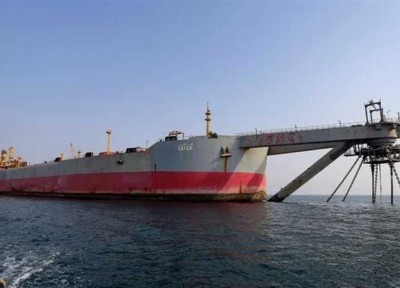The United Nations announces the start of withdrawing the “Safer tanker” oil within days of the new tanker’s arrival


The United Nations announced today, Friday, the completion of withdrawing more than a million barrels of oil from the dilapidated Safer tanker off the coast of Yemen on the Red Sea, averting a potential environmental disaster that would have cost $20 billion to erase its effects.
United Nations officials have been warning for years that the tanker faces the risk of explosion, and may leak an amount of oil four times greater than the Exxon Valdez disaster in 1989 off the state of Alaska, due to the suspension of maintenance operations since 2015.
The United Nations announced, late last month, the start of the process of transferring crude oil from the tanker “Safer” to the replacement ship “Yemen” (formerly Nautica), stressing that the process is scheduled to be completed within 19 days.
Since 1986, the Yemeni government has used the tanker “Safer”, anchored about 4.8 nautical miles from Ras Issa port in Hodeidah Governorate, as a floating storage unit in the Red Sea to receive crude from the Safer fields in Ma’rib Governorate and export it.
The possibility of a leakage of the quantities stored in the tanker “Safer” has increased since 2015, estimated at 1.14 million barrels of Marib light crude, especially after water leaked into the engine room, in June 2020.
The United Nations warned that a major oil leak from the dilapidated tanker could cause the temporary closure of the ports of Hodeidah and Saleef, which are essential for bringing food, fuel and life-saving supplies to a country where 80% of its people need humanitarian aid as a result of the conflict that is tearing it apart, while the costs are estimated. Cleaning only costs $20 billion.